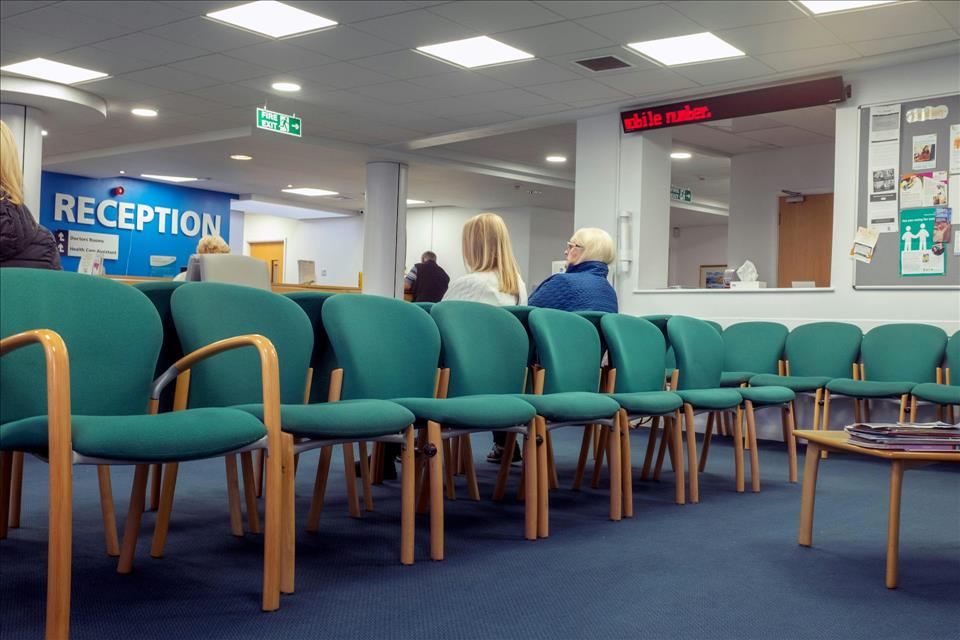
When Healthcare Advice Feels Like Blame The Problem With 'Making Every Contact Count'
These increasingly common experiences aren't accidental. Since 2016, NHS staff in England have been required to follow a policy called Making Every Contact Count , which mandates that healthcare workers use interactions with patients as an opportunity to encourage healthier lifestyles.
While you may never have heard of this term, if you've received unexpected health advice during a medical appointment, you've probably encountered this policy in action. Similar initiatives exist in other UK nations and in healthcare systems worldwide.
Making Every Contact Count has persisted for nearly a decade because the underlying principle appears sound. Research shows that brief advice – sometimes lasting just minutes or even seconds – can genuinely help people quit smoking , increase their physical activity , or reduce their alcohol consumption .
For the NHS, this approach offers particular appeal. It's low-cost and allows the health service to demonstrate that it's moving beyond simply treating disease towards actively preventing it.
When good intentions go wrongHowever, the reality often falls short of these noble intentions. Many readers will recognise scenarios where this approach backfires.
A typical example involves someone seeking help for a minor injury who leaves the consultation clutching an unwanted leaflet about weight loss, despite not having mentioned weight at all. Receiving unwanted advice can leave patients feeling lectured to rather than supported, creating feelings of guilt and judgment instead of empowerment.
The frustration intensifies when patients lack the resources to act on the advice they've received. Being told to exercise more or eat better foods becomes particularly galling when you're struggling financially, working multiple jobs or living in an area with limited access to healthy food or safe exercise facilities.
This resource gap reveals a fundamental flaw in the Making Every Contact Count approach. The policy claims it can help reduce health inequalities by encouraging discussions about broader issues like housing and employment , yet, in research my colleagues and I conducted, we found no evidence to support these claims.
Instead of addressing structural inequalities, these conversations risk reinforcing them by placing responsibility on people who may have limited power to change their circumstances.
Your knee hurts? Have you thought about being wealthier? Monkey Business Images/Shutterstock
This problem is compounded by the NHS's broader shift towards patient“empowerment” through increased choice and responsibility. The latest NHS strategy promises patients unprecedented choice over where they receive treatment, supported by league tables ranking healthcare providers. Patients will even influence provider payments through their feedback on care quality.
While these changes sound progressive, they rest on the false assumption that all patients have equal capacity to exercise choice. Those with internet access, education and flexible schedules may thrive in this system, navigating league tables and travelling to optimal providers.
Yet others may struggle to access or interpret the information, juggle appointments with work and childcare commitments, or face limitations imposed by public transport links. Without careful consideration of how to level this playing field, this policy risks widening rather than narrowing health inequalities.
The challenge lies in distinguishing between true empowerment and victim-blaming disguised as patient choice. Genuine empowerment in healthcare requires several key elements that are sometimes missing from current approaches.
First, conversations about health and lifestyle must be approached with tact and timing. Research my colleagues and I conducted shows that these discussions should occur at appropriate moments and focus on changes patients actually want to make. The interaction should be characterised by empathy, leaving patients feeling heard and motivated rather than criticised or overwhelmed.
Crucially, studies show people resist being told what to do, particularly when it feels like preaching. Instead, they prefer collaborative, two-way conversations that acknowledge their expertise about their own lives and circumstances. This means healthcare workers need skills in motivational interviewing and behaviour change, not just medical knowledge.
Beyond individual responsibilityHowever, improving the quality of these conversations alone isn't enough. Making Every Contact Count and similar“empowerment” initiatives must work alongside – not instead of – strategies that provide people with the actual resources needed to live healthier lives. This means addressing housing quality, food security, employment conditions and access to recreational facilities.
True empowerment recognises that health choices occur within social, economic and environmental constraints. A person living in temporary accommodation, working zero-hours contracts or caring for elderly relatives faces different challenges to someone with stable housing, regular income and family support. Healthcare policies that ignore these realities risk perpetuating a cycle where those with the least power are held most responsible for their health outcomes.
The goal should be creating conditions where everyone can be genuinely empowered, because they have the capability to make choices about their life. This requires systemic change that goes far beyond brief conversations with a healthcare professional, acknowledging that individual behaviour change and structural reform must work hand-in-hand to create meaningful improvements in population health.

Legal Disclaimer:
MENAFN provides the
information “as is” without warranty of any kind. We do not accept
any responsibility or liability for the accuracy, content, images,
videos, licenses, completeness, legality, or reliability of the information
contained in this article. If you have any complaints or copyright
issues related to this article, kindly contact the provider above.


















Comments
No comment